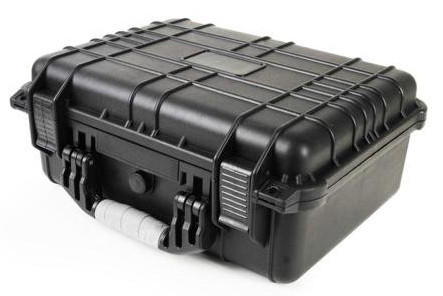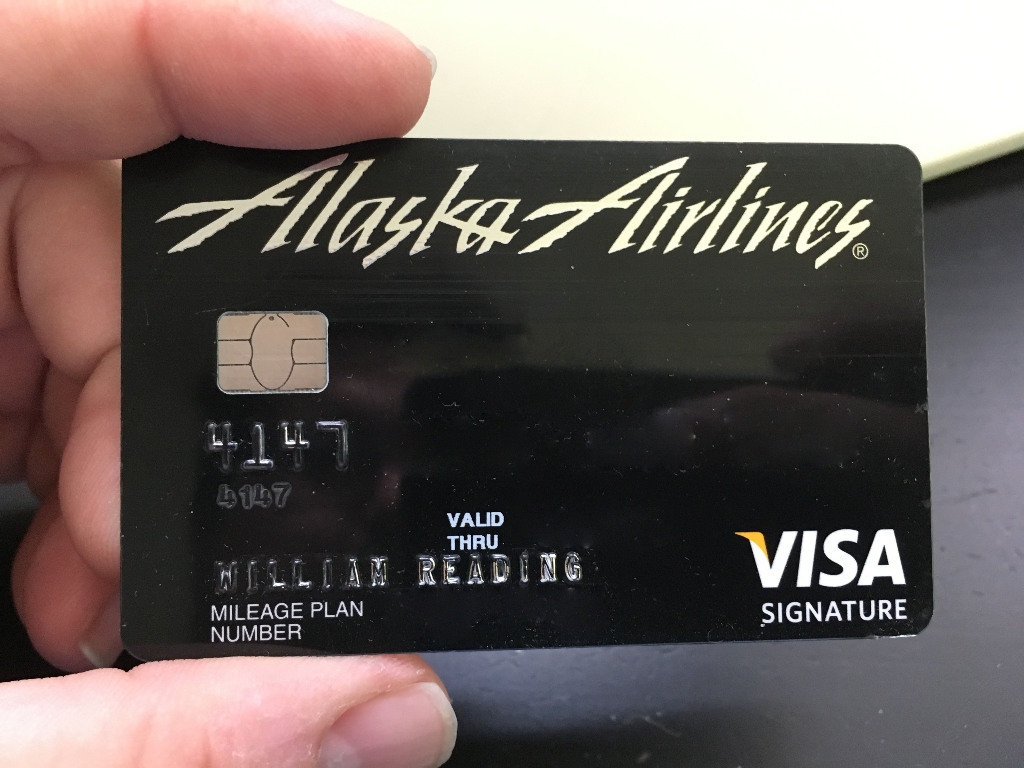
If you hold a few of the premium travel credit cards, such as the Amex Platinum, Citi Prestige or Chase Sapphire Reserve, you might be surprised to see that they don’t have all the same insurance benefits. I’ve read a number of articles that talk about where you can redeem points or what type of status you get a hotel, but few that talk about the insurance benefits in detail. I spent some time reading through the benefits guides to see what would be the best card to use when something goes wrong.
Below are my summaries of the benefits from each card. Note that the issuer could change the benefits at any time and I could have misinterpreted what the issuer meant to provide. Check with your card issuer for the specifics.
In general, the Citi Prestige is a better card for insurance benefits, followed by the Chase Sapphire Reserve. The Amex Platinum fell behind on most of the benefits, though the emergency evacuation benefit notably doesn’t require a purchase, unlike the other two cards.
The Comparison
Car Rentals
If you already have car insurance, the Chase Sapphire Reserve is the best card for car rentals due to its primary insurance coverage, even though the upper bound of coverage is lower than the Citi Prestige.
If you don’t have car insurance, then these cards don’t differ much. They will all cover any damage that you cause to the vehicle, but not damage that you cause to others (though Amex does exclude a lot of vehicles). They all limit rentals to under a month or so, and have a number of exclusions, such as requiring compliance with the rental agreement.
The interesting differences come when you have your own insurance already, are traveling abroad from the US, or like to rent expensive vehicles.
Already Have Auto Insurance
If you already have auto insurance, then you probably want to rent with a Chase card that includes primary auto insurance. These include the Chase Sapphire Preferred, Chase Sapphire Reserve, MileagePlus Explorer, Ritz-Carlton card and more cards that I’m forgetting.
Neither the Prestige nor Platinum will provide primary insurance by default.
American Express will sell you primary insurance on a per-rental basis, but it costs extra.
Renting Expensive Vehicles
The Citi Prestige covers vehicles up to $100k of damage and doesn’t have vehicle exclusions. The Chase Sapphire Reserve is similar, but is only up to $75k of coverage and has a handful of exclusions around trucks, vans, antique cars, etc.
The AMEX Platinum is also up to $75k of coverage, but excludes cars such as the Chevrolet Corvette, full-sized SUVs including a GMC Suburban or Tahoe. I’ve rented some of these vehicles before due to the luck of the draw, so these are somewhat surprising to me.
Renting with Points
The Citi Prestige will provide insurance if you pay with points. The AMEX Platinum will if you pay with points, but only in the US. The Chase cards don’t allow you to pay with points.
Passenger Coverage
The AMEX Platinum will pay up to $5,000 for medical expenses per person in an accident, up to $20,000 for injury or death of a passenger and up to $200,000 for injury or death of the card holder.
Neither the Citi nor Chase cards provide that benefit.
Trip Delay
The Citi Prestige and Chase Sapphire Reserve both have coverage for delays up to $500, but primarily differ in when it can be claimed and who is covered. The Amex Platinum doesn’t provide a trip delay benefit. In general, the Citi Prestige is more generous than the Chase Sapphire Reserve for this benefit.
For the cards that have this benefit, you need to have some kind of documentation substantiating the claim, so you’ll need to get it from the common carrier (airline, train line, etc.). There are good articles for how to go about obtaining proof.
Trip Delay protection pays for things such as actual costs of food, hotel and toiletries while you are waiting to go on your way.
Covered Reasons
The Citi Prestige covers delays caused by the carrier, stolen documents/money, overbooking, weather, strikes, quarantines and hijacking.
The Chase Sapphire Reserve covers delays caused by the carrier, weather, strikes, and hijackings.
Both cards exclude things that are under your control, such as knowingly booking a flight when there were scheduled strikes.
Time to Benefit
The Citi Prestige will kick in after a three hour delay on a common carrier. The Chase Sapphire reserve will kick in after a six hour delay.
Payment Required
The Citi Prestige will cover the delay when at least a portion of the ticket was paid for with the card or with points issued by the card. The Chase Sapphire Reserve requires that the entire ticket be paid with the card.
Traveling Companions
The Citi Prestige will cover anyone traveling with you that you paid for a ticket with the card. The Chase Sapphire Reserve will only cover a spouse and dependent children.
Baggage Delay
The Citi Prestige and Chase Sapphire Reserve both have coverage for baggage delays up to $500, but differ in when and how you can claim the benefits. The Amex Platinum doesn’t offer a baggage delay benefit. In general, the Citi Prestige is more generous than the Chase Sapphire Reserve for this benefit.
Like with the trip delay, having some documentation that your bag was lost will help with the claim.
Time to Benefit
The Citi Prestige will kick in after three hours. The Chase Sapphire Reserve will kick in after six hours. The Citi Prestige will provide the benefit as $500 per person per trip as soon as the delay occurs. The Chase Sapphire Reserve splits it out as $100 per person per trip per day.
Payment Required
Both the Citi Prestige and Chase Sapphire Reserve will provide this benefit as long as a portion was paid for with the card. The Citi Prestige allows some of this to have been with points issued by Citi.
Traveling Companions
The Citi Prestige will cover anyone traveling with you that you paid for a ticket with the card.
The Chase Sapphire Reserve will only cover a spouse and dependent children, but you don’t have to be traveling with them at the time.
Lost Bags
The Citi Prestige covers up to $3k per bag per person with a cap of $10k per trip.
The Chase Sapphire Reserve covers up to $3k per person, with an additional cap of $500 per item for certain types of expensive items, such as jewelry or electronics.
The Amex platinum covers up to $3k per person, but will only cover up to $3k per carry-on bag and $2k per checked bag. The platinum also caps certain kinds of expensive items at $250/item.
All of the cards require that the bag was lost by a common carrier (airline, train line, etc.), and exclude things like tickets, money, antiques and collectibles.
Traveling Companions
The Citi Prestige will cover anyone traveling with you that you paid for a ticket with the card.
The Chase Sapphire Reserve will only cover a spouse and dependent children, and you do have to be traveling with them at the time.
The American Express includes dependents and spouses / domestic partners.
Trip Cancellation / Interruption
The Chase Sapphire Reserve covers up to $10k per person, $20k per trip and up to $40k per year trip cancellation benefits. The Citi Prestige covers up to $5k per person and doesn’t have trip or yearly caps.
The AMEX Platinum doesn’t have this benefit, though you can purchase it from American Express.
Both cards that offer this benefit include becoming sick or injured after the trip has been booked, finding that the hotel or airline has gone out of business, natural disasters, finding out that your home is uninhabitable, and other similar things outside of your control.
Both cards exclude things that are probably within your control, such as traveling against the advice of your doctor or booking a trip to an area with severe weather.
Interestingly enough, the Chase Sapphire Reserve excludes trips on any rocket propelled or rocket launched aircraft, so it doesn’t look like it will cover space trips anytime soon.
Medical Evacuation
Both the Citi Prestige and Chase Sapphire Reserve will pay to have you evacuated to a hospital and pay medical expenses up to $100k if you’re in a country that does not have adequate medical care.
The Amex Platinum will evacuate you, but you’re on the hook for the medical bills.
All three cards require that you contact them ahead of time and arrange for the evacuation to go through them. You have to charge a portion of the common carrier fare to your card to use this benefit for the Citi and Chase cards, but not for the AMEX Platinum.
Emergency Medical / Dental
The Chase Sapphire Reserve has a unique benefit in that if you purchase a common carrier ticket and are away from home for more than five days (but less than 60) and more than 100 miles away, you can get up to $2500 (with a $50 deductible) to pay for medical and dental bills that aren’t covered by your insurance.
If you have to stay at a hotel near a hospital, they will pay up to $75/day for that up to five days.
Roadside Assistance
Both the Prestige and Amex Platinum will tow you up to 10 miles. The Chase Sapphire reserve doesn’t set a mileage limit, but does cap the cost to $50 per event up to four times a year. The Prestige and Platinum will help you with a lockout for keys in the car, and the Reserve will pay up to $50 for a locksmith to get into your car.
All three cards will give you a jump start, deliver two gallons of gas, change out your spare tire if you have one, and effectively limit their coverage to non-recreational and non-commercial vehicles.
None of the cards require a purchase.
Travel Accidents
All three cards provide coverage for a common carrier trip where an accident occurs that results in death and dismemberment. The amount of coverage varies per card, but the Prestige and Reserve cover up to $1MM and the Platinum covers up to $500k.
All three exclude jumping out of a plane voluntarily, and the Chase Sapphire Reserve has an exclusion for spacecraft.
What Card to Use for What?
From this list, I’d say that it’s a good idea to buy plane tickets with the Citi Prestige because the benefits are better than the Chase Sapphire Reserve and the AMEX Platinum in terms of who they can be applied, how long until you can claim them, and how generous they are.
If you’re renting a car, the Chase Sapphire Reserve is better if you already have car insurance and are renting inside the US. If you’re renting outside the US, the Citi Prestige has higher limits.


